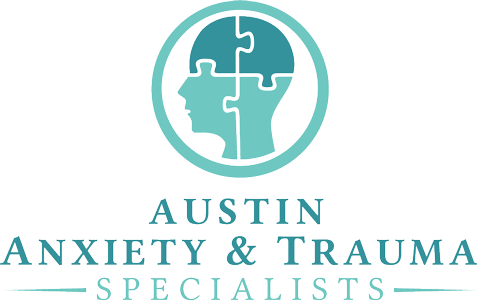Attention Deficit Hyperactivity Disorder (ADHD) and anxiety are two mental health conditions that often coexist. According to the Anxiety and Depression Association of America (ADAA), up to 50% of individuals with ADHD experience symptoms of anxiety. For those who experience both ADHD and anxiety, it can feel like a juggling act. On one hand, ADHD can make it difficult to focus and stay organized, while anxiety begs for certainty and can lead to excessive worry and fear. Together, these conditions can create a sense of chaos and unpredictability, leaving you feeling exhausted, frustrated, and discouraged.
However, it doesn’t have to be like that. Effective treatment and management strategies are available to help individuals with ADHD and anxiety work with these challenges and thrive. This blog post will help you understand the link between ADHD and anxiety to better help manage symptoms and start your healing journey.
What is Anxiety?
Anxiety is a natural response to stress and can be experienced by anyone at any age. However, anxiety disorders are a group of mental health conditions that involve excessive and persistent fear, worry, and nervousness that can interfere with daily functioning. Here are some common symptoms of anxiety:
- Excessive worry about the future
- Ruminating over bad experiences
- Restlessness and difficulty relaxing
- Fatigue and difficulty concentrating
- Irritability and muscle tension
- Panic or anxiety attacks
- Avoidance of situations or activities that may trigger anxiety
While everyone experiences anxiety at times, individuals with anxiety disorders experience symptoms that are chronic, severe, and interfere with their ability to function in daily life.
Read: Am I Having an Anxiety Attack?
What is ADHD?
Attention Deficit Hyperactivity disorder (ADHD) is a neurodevelopmental disorder that affects individuals of all ages. ADHD is characterized by a persistent pattern of inattention, hyperactivity, and impulsivity that interferes with daily functioning. Some common symptoms of ADHD are:
- Short attention span for undesired tasks
- Often loses things necessary for tasks and activities
- Difficulty following multi-step instructions and finishing tasks
- Restlessness or fidgeting
- Impulsivity and difficulty regulating emotions
- Excessive talking and interrupting others
- Poor time management and executive dysfunction
While most individuals experience some level of inattention, hyperactivity, and impulsivity at times, those with ADHD experience these symptoms to a degree that interrupts daily life.
Read: How to Regulate Your Emotions Without Numbing Them Out
Factors Contributing to the Link Between ADHD and Anxiety
The link between ADHD and anxiety is complex and multifaceted. There are several factors that can contribute to the development of anxiety in individuals with ADHD. Some of these factors include:
Executive functioning difficulties. Executive functioning refers to a set of cognitive skills that enable us to plan, organize, and complete tasks. Individuals with ADHD often struggle with executive functioning, which can lead to difficulty managing time and completing tasks. This can create feelings of stress and anxiety.
Hyperfocus. While individuals with ADHD often struggle with paying attention, they can also experience hyperfocus. Hyperfocus is an intense level of concentration on a task or activity. When hyperfocused, individuals may become so absorbed in the task that they ignore other important responsibilities. This can lead to feelings of anxiety and stress about neglected tasks.
Social difficulties. Many individuals with ADHD struggle with social interactions, which can lead to feelings of anxiety in social situations. Social anxiety can be particularly challenging for those with ADHD, as it can impact their ability to form and maintain relationships.
Medication. Medication used to treat ADHD can also contribute to anxiety in some individuals. Stimulant medications, such as Ritalin and Adderall, are commonly prescribed to treat ADHD. While these medications can be effective in reducing symptoms of ADHD, they can also cause side effects such as increased heart rate and blood pressure, which can contribute to feelings of anxiety.
Genetic factors. ADHD and anxiety both have genetic components. Research has shown that individuals with a family history of ADHD or anxiety are more likely to develop these conditions themselves.
Treatment Options for Individuals with ADHD and Anxiety
Effective treatment for ADHD and anxiety involves a multifaceted approach that may include medication, therapy, and lifestyle changes. Here are some treatment options that may be helpful:
Medication. Stimulant medications such as Ritalin and Adderall are commonly used to treat ADHD, but they may also increase anxiety symptoms in some individuals. In such cases, alternative medications may be recommended. Antidepressants and anti-anxiety medications may also be prescribed to manage anxiety symptoms.
Therapy. Cognitive-behavioral therapy (CBT) is a type of talk therapy that can be effective in managing both ADHD and anxiety. CBT is a type of talk therapy that helps individuals identify negative thought patterns and behaviors and replace them with more positive ones. During CBT, individuals work with a therapist to identify the specific thoughts and behaviors that trigger or exacerbate ADHD and anxiety symptoms. They then learn practical strategies for changing those thought patterns and behaviors into positive outcomes for long term change.
Healthy Lifestyle. Making healthy lifestyle changes can also be beneficial for managing ADHD and anxiety. Regular exercise, a healthy diet, and adequate sleep can improve mood, reduce stress, and boost overall well-being.
Mindfulness. Mindfulness-based interventions can be helpful in coping with symptoms of anxiety and improving attention in individuals with ADHD. Mindfulness involves observing your feelings and emotions in the present moment without judgment.
Education and Support. Education about ADHD and anxiety can help individuals better understand their conditions and learn coping strategies. Support groups can also provide a sense of community and understanding.
It’s important to work closely with a healthcare provider to determine the best course of treatment and develop an individualized plan for managing symptoms. With the right tools and support, individuals with ADHD and anxiety can improve their quality of life and learn to navigate their daily lives with greater ease.
Our CBT-trained therapists at Austin Anxiety and Trauma Specialists offer online counseling to all residents of Texas. Schedule your first appointment with us and we’ll match you with a trained professional who can best help you manage anxiety, stress, and more. It can get better. We can help.






